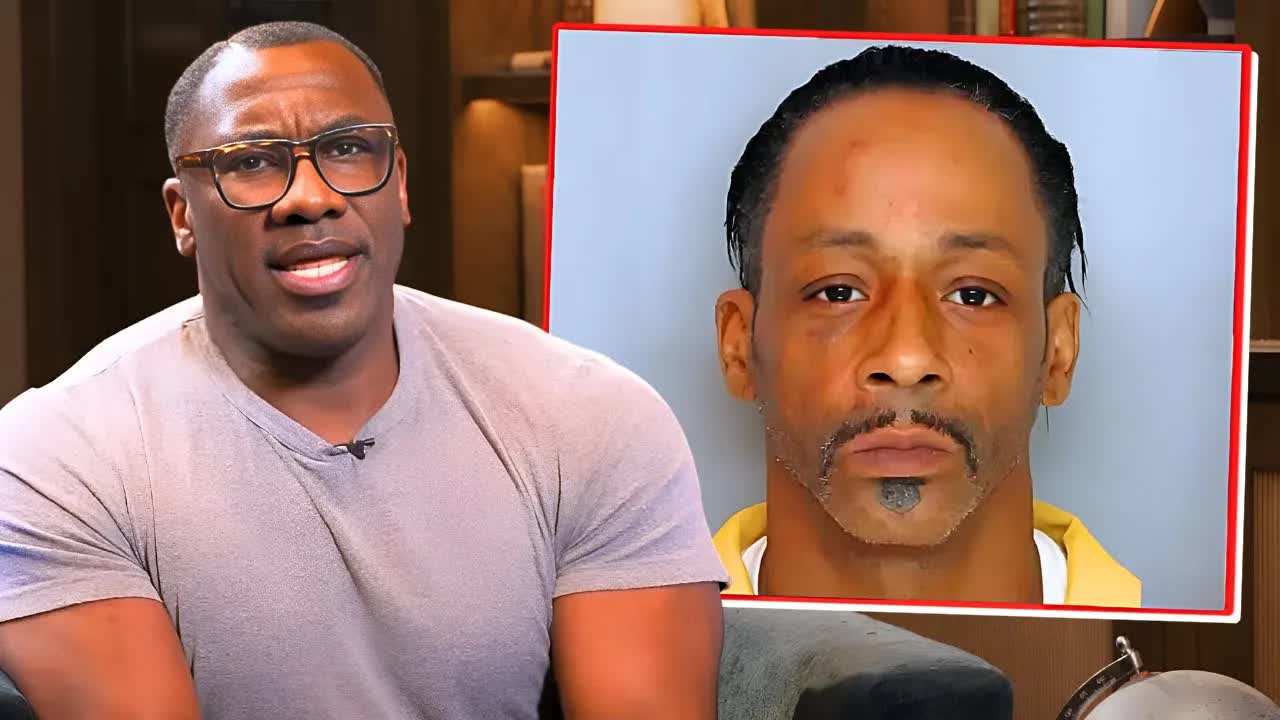In a recent whirlwind of media attention, Shannon Sharpe has found himself at the center of a storm following his viral interview with comedian Kat Williams.
The conversation, which was packed with bold claims and candid revelations, has led to unexpected consequences for Sharpe, raising questions about the price of fame and the responsibility of hosts in navigating sensitive topics.
Sharpe, who is known for his engaging style and willingness to let guests express themselves, sat down with Cam Newton to discuss the fallout from his chat with Williams.
During their discussion, Sharpe reflected on how he didn’t anticipate the ripples that would ensue from allowing Williams to speak freely.
“I didn’t know it was going to cause this kind of ripple,” he admitted, acknowledging the shift in his career trajectory since the interview aired.
Williams, a comedian renowned for his unfiltered commentary, had warned Sharpe that his revelations could attract backlash from powerful figures within the industry.
“They’re gonna come for you,” Williams had said, predicting that some people might distance themselves from Sharpe after hearing Williams’ candid remarks.
It seems those predictions have come to fruition, as Sharpe has reportedly faced attempts to undermine his platform.
During the interview with Newton, Sharpe explained his approach to interviewing guests.
He emphasized that he allows them to speak without interruption, trusting that they are sharing their truth.
This philosophy, however, has drawn criticism, particularly when guests make controversial claims about other public figures.
Critics argue that Sharpe should take a more active role in fact-checking or challenging dubious statements made by his guests.
The fallout from the Williams interview has included a surge of rumors about Sharpe’s personal life, with some suggesting he is attempting to hide aspects of his sexuality.
“If I respond, they say hit dog holler; if I don’t respond, they say I’m hiding something,” Sharpe lamented, highlighting the no-win situation he feels trapped in as a public figure.
This scrutiny has amplified since the interview, leading to an avalanche of speculation about his private life.
Industry reactions have been swift and scathing.
Notable figures like Steve Harvey and DL Hughley have publicly criticized Sharpe, accusing him of enabling negativity and gossip.
Harvey, while initially claiming he wouldn’t address the drama, later took to social media to imply that Williams may not be trustworthy.
“Be careful when you hear something that’s laid out to be the truth,” Harvey warned, suggesting that Williams’ eloquence could mask deceit.
Hughley went even further, labeling Sharpe as the “Wendy Williams with a weight set,” a jab aimed at his perceived role in stirring controversy.
Sharpe responded to these critiques by asserting that he does not engage in gossip but rather facilitates conversations where guests can share their narratives.
He defended his style, stating, “I’m not here to push back; I’m here to let the guest talk.”
Despite the backlash, Sharpe acknowledged the positive impact of the Williams interview on his podcast’s popularity.
He expressed gratitude for the increased viewership, noting that the interview had indeed propelled his platform into a new dimension, as Williams had predicted.
However, the cost of that success appears to be mounting, as he grapples with the fallout from industry insiders displeased with his choice of guests.
As the dust settles, fans are divided over Sharpe’s handling of the situation.
Some believe he should have anticipated the backlash and taken a firmer stance during the interview.
Others argue that his role as a conversationalist should allow for open dialogue without the burden of defending every claim made by his guests.
In the wake of this controversy, one question looms large: how far should hosts go in moderating their conversations?
For Sharpe, the challenge lies in balancing authenticity with accountability, a tightrope walk that many in the media world face today.
As the landscape of celebrity interviews continues to evolve, it remains to be seen how Sharpe will navigate the choppy waters ahead.
The incident serves as a reminder of the complexities involved in modern journalism and entertainment.
In an age where social media amplifies every word, the stakes are higher than ever for those who choose to give a platform to controversial voices.
For Sharpe, the journey through this tumultuous period is just beginning, and the lessons learned may shape his approach to interviews in the future.































